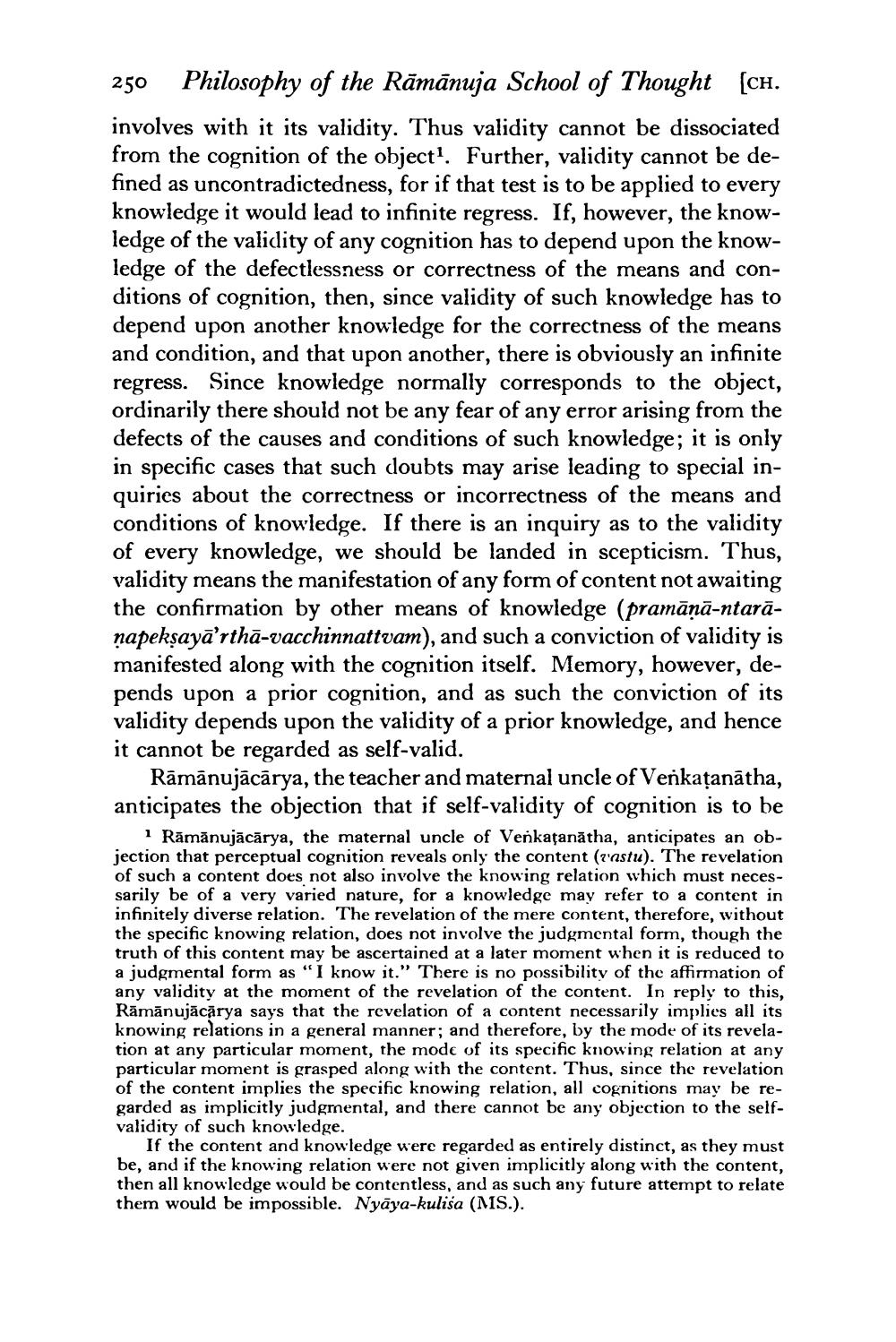________________
250 Philosophy of the Rāmānuja School of Thought (ch. involves with it its validity. Thus validity cannot be dissociated from the cognition of the objecti. Further, validity cannot be defined as uncontradictedness, for if that test is to be applied to every knowledge it would lead to infinite regress. If, however, the knowledge of the validity of any cognition has to depend upon the knowledge of the defectlessness or correctness of the means and conditions of cognition, then, since validity of such knowledge has to depend upon another knowledge for the correctness of the means and condition, and that upon another, there is obviously an infinite regress. Since knowledge normally corresponds to the object, ordinarily there should not be any fear of any error arising from the defects of the causes and conditions of such knowledge; it is only in specific cases that such doubts may arise leading to special inquiries about the correctness or incorrectness of the means and conditions of knowledge. If there is an inquiry as to the validity of every knowledge, we should be landed in scepticism. Thus, validity means the manifestation of any form of content not awaiting the confirmation by other means of knowledge (pramānā-ntarānapekṣayā'rthā-vacchinnattvam), and such a conviction of validity is manifested along with the cognition itself. Memory, however, depends upon a prior cognition, and as such the conviction of its validity depends upon the validity of a prior knowledge, and hence it cannot be regarded as self-valid.
Rāmānujācārya, the teacher and maternal uncle of Verkațanātha, anticipates the objection that if self-validity of cognition is to be
1 Rāmānujācārya, the maternal uncle of Venkațanātha, anticipates an objection that perceptual cognition reveals only the content (vastu). The revelation of such a content does not also involve the knowing relation which must necessarily be of a very varied nature, for a knowledge may refer to a content in infinitely diverse relation. The revelation of the mere content, therefore, without the specific knowing relation, does not involve the judgmental form, though the truth of this content may be ascertained at a later moment when it is reduced to a judgmental form as “I know it." There is no possibility of the affirmation of any validity at the moment of the revelation of the content. In reply to this, Rāmānujācārya says that the revelation of a content necessarily implies all its knowing relations in a general manner; and therefore, by the mode of its revelation at any particular moment, the mode of its specific knowing relation at any particular moment is grasped along with the content. Thus, since the revelation of the content implies the specific knowing relation, all cognitions may be regarded as implicitly judgmental, and there cannot be any objection to the selfvalidity of such knowledge.
If the content and knowledge were regarded as entirely distinct, as they must be, and if the knowing relation were not given implicitly along with the content, then all knowledge would be contentless, and as such any future attempt to relate them would be impossible. Nyāya-kulisa (MIS.).




